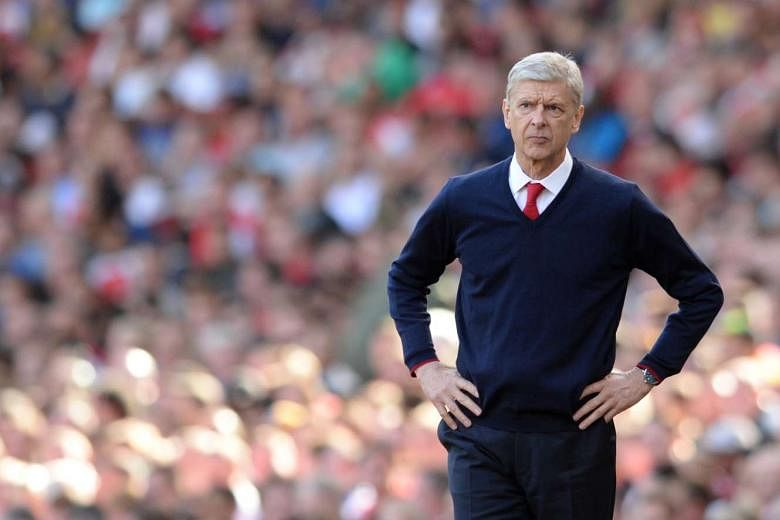LONDON • With athletics embroiled in the most serious of its many doping scandals, Arsenal manager Arsene Wenger has again voiced his concern that it is a serious issue in football.
He said in an interview with L'Equipe that he has "played against many teams" who use performance-enhancing drugs.
In September, his Arsenal side lost 1-2 at Dinamo Zagreb in the Champions League. The Croatian club's midfielder Arijan Ademi, who played the full 90 minutes, failed a drug test after the game.
"When I saw that the players of Zagreb were doped - well, when you don't play at your best and your opponent is doped, it is difficult," he said last month.
"I try to be faithful to the values that I believe to be important in life and to pass them on to others," Wenger told the French sports daily. "In 30 years as a manager, I've never had my players injected to make them better. I never gave them any product that would help enhance their performance.
"I'm proud of that. I've played against many teams that weren't in that frame of mind."
Two years ago, he said sport was "full of legends who are in fact cheats" as he called on European football governing body Uefa to improve its drug testing programme .
"Honestly, I don't think we do enough (on doping tests)," he said.
"It is very difficult for me to believe that you have 740 players at the World Cup and you come out with zero problems. Mathematically, that happens every time.
"I hope England is immune from doping but I don't know. When you have a doping control at Uefa (matches), they do not take blood, they take only urine. I have asked many times in Geneva (for that to be changed). I hope we do not have a big problem with doping but we have to try to find out."
His request for blood testing was quickly answered, with Uefa announcing its introduction four months later.
It introduced a steroid profiling programme at the start of the current season but will not punish Dinamo for Ademi's transgression because at least two players from a single team must test positive before sanctions are imposed.
"Uefa has had a very thorough anti-doping programme for many years with over 2,000 tests a year and only two occurrences of positive tests, both for recreational drugs, which proves that doping in football is extremely rare," it said in a statement in September.
It came after it was claimed that a study it commissioned had found high testosterone levels in 7.7 per cent of the 879 players tested.
Wenger was embroiled in a doping controversy of his own in 2011 when former Arsenal midfielder Paul Merson told French magazine So Foot that "on the night before big games, we would go to a Holiday Inn in Islington where a yellowy product was injected into our arm. I never asked any questions.
"From the moment you trust a manager, you take everything he asks you to".
At the time, an Arsenal spokesman said the substance was a "simple multivitamin injection" while Wenger angrily denied the story, saying: "If you find one player who I asked to take an injection to play one game, no matter how big the game was, I would resign tomorrow morning."
THE GUARDIAN

